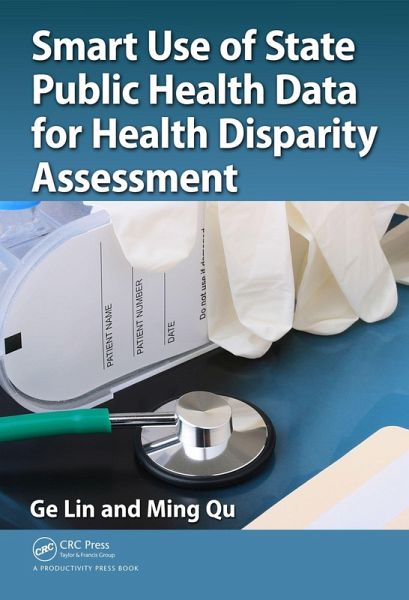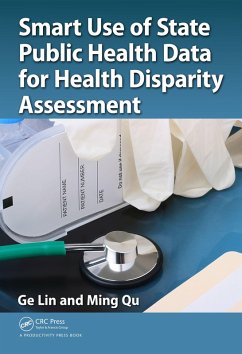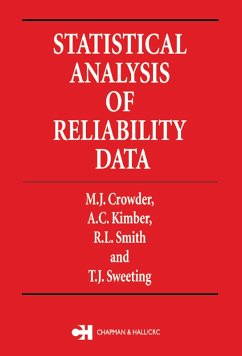
Smart Use of State Public Health Data for Health Disparity Assessment (eBook, ePUB)

PAYBACK Punkte
38 °P sammeln!
Health services are often fragmented along organizational lines with limited communication among the public health-related programs or organizations, such as mental health, social services, and public health services. This can result in disjointed decision making without necessary data and knowledge, organizational fragmentation, and disparate knowledge development across the full array of public health needs. When new questions or challenges arise that require collaboration, individual public health practitioners (e.g., surveillance specialists and epidemiologists) often do not have the time ...
Health services are often fragmented along organizational lines with limited communication among the public health-related programs or organizations, such as mental health, social services, and public health services. This can result in disjointed decision making without necessary data and knowledge, organizational fragmentation, and disparate knowledge development across the full array of public health needs. When new questions or challenges arise that require collaboration, individual public health practitioners (e.g., surveillance specialists and epidemiologists) often do not have the time and energy to spend on them.
Smart Use of State Public Health Data for Health Disparity Assessment promotes data integration to aid crosscutting program collaboration. It explains how to maximize the use of various datasets from state health departments for assessing health disparity and for disease prevention. The authors offer practical advice on state public health data use, their strengths and weaknesses, data management insight, and lessons learned. They propose a bottom-up approach for building an integrated public health data warehouse that includes localized public health data.
The book is divided into three sections: Section I has seven chapters devoted to knowledge and skill preparations for recognizing disparity issues and integrating and analyzing local public health data. Section II provides a systematic surveillance effort by linking census tract poverty to other health disparity dimensions. Section III provides in-depth studies related to Sections I and II. All data used in the book have been geocoded to the census tract level, making it possible to go more local, even down to the neighborhood level.
Smart Use of State Public Health Data for Health Disparity Assessment promotes data integration to aid crosscutting program collaboration. It explains how to maximize the use of various datasets from state health departments for assessing health disparity and for disease prevention. The authors offer practical advice on state public health data use, their strengths and weaknesses, data management insight, and lessons learned. They propose a bottom-up approach for building an integrated public health data warehouse that includes localized public health data.
The book is divided into three sections: Section I has seven chapters devoted to knowledge and skill preparations for recognizing disparity issues and integrating and analyzing local public health data. Section II provides a systematic surveillance effort by linking census tract poverty to other health disparity dimensions. Section III provides in-depth studies related to Sections I and II. All data used in the book have been geocoded to the census tract level, making it possible to go more local, even down to the neighborhood level.
Dieser Download kann aus rechtlichen Gründen nur mit Rechnungsadresse in A, B, BG, CY, CZ, D, DK, EW, E, FIN, F, GR, HR, H, IRL, I, LT, L, LR, M, NL, PL, P, R, S, SLO, SK ausgeliefert werden.













